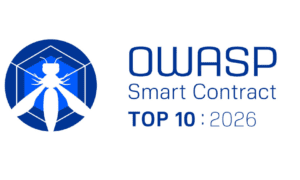A breakthrough in African genomic research has quietly entered the global scientific record. Nigerian researcher Okunade Gabriel Femi has successfully sequenced and deposited the genome data of two freshwater snail species, Pachymelania fusca and its subspecies Pachymelania fusca (quadriseriata), into the National Center for Biotechnology Information (NCBI) GenBank, one of the world’s largest and most trusted public databases of genetic information.
The data submission, registered under NCBI accession PRJNA681324, addresses a critical knowledge gap in the genomic representation of mollusks. According to the data record, fewer than 60 Molluscan genome assemblies existed in the repository at the time of Femi’s contribution, covering only half of the known Molluscan classes. This disproportionate underrepresentation of invertebrate genomes, particularly from the African continent, has long limited the reach and resolution of biodiversity research.
Femi’s work marks one of the first genome assemblies of Pachymelania fusca, a native West African species with ecological, nutritional, and economic significance. Its successful sequencing introduces vital new data into the global system of environmental and evolutionary biology.

A Rare Contribution to Molluscan Genomics
The phylum Mollusca, which includes snails, clams, squids, and octopuses, is the second-largest animal phylum on Earth. Yet, its genomic presence in international databases has remained minimal. The reasons for this include both technical challenges and systemic underinvestment in invertebrate research, particularly in regions like sub-Saharan Africa.
This imbalance is particularly evident in global databases like GenBank, where genome data is often skewed toward species from industrialized countries and high-tech research institutions. The inclusion of African-origin benthic species like P. fusca helps rectify this gap, providing a more accurate reflection of global biodiversity and facilitating broader scientific exploration.
The data for Pachymelania fusca now provides a foundational reference point for future studies on species adaptation, habitat resilience, and disease vector modeling. It opens new doors for understanding the ecological roles of mollusks in riverine systems, especially in the context of climate variability and water pollution, two of the biggest challenges affecting freshwater biodiversity in West Africa.
Strategic Relevance for African Genomics
Despite being rich in biological diversity, Africa has historically contributed a disproportionately small volume of genomic data to international databases. Femi’s deposition changes that narrative by placing a locally important species into a global digital common, allowing researchers worldwide to access, cite, and build on African genetic resources.
The availability of open genomic data like this has implications far beyond taxonomy. It supports environmental monitoring, conservation planning, aquaculture development, and even public health. Some freshwater snails are known to serve as intermediate hosts for parasitic diseases, and full genome data is essential to track, model, and mitigate such risks.
As genomics becomes central to environmental science and policy, Femi’s contribution can serve as a template for other researchers in the region. His work demonstrates that individual scientists, even without multinational partnerships or elite institutional backing, can have a measurable impact on global science by focusing on targeted, high-value data creation and open-access sharing.
Scientific Infrastructure and Data Equity
Globally, the scientific infrastructure for genomic research is uneven. High-throughput sequencing platforms, bioinformatics labs, and cloud-based data management tools are still limited in many developing countries. This creates barriers to participation in large-scale global initiatives such as genome mapping of endangered species or environmental DNA monitoring.
Femi’s work bypasses these limitations by focusing on publicly accessible digital infrastructure. By submitting his work to GenBank, he ensured that the genome sequences of Pachymelania fusca would be preserved, indexed, and made available to the global scientific community. This approach amplifies the reach of his research and ensures that African biodiversity is not excluded from digital science platforms that increasingly shape environmental decision-making.
More broadly, the contribution highlights the growing role of data equity in modern research. In an era where AI models are being trained on genomic databases, the absence of African genomes means that many algorithms, whether for drug discovery, species identification, or environmental modeling, are blind to the continent’s biodiversity. Femi’s deposition begins to correct this oversight and contributes to a more inclusive and representative scientific knowledge base.
Environmental and Economic Implications
The sequencing of Pachymelania fusca has both environmental and economic implications. Ecologically, the species plays a critical role in West African aquatic ecosystems, functioning as a grazer, decomposer, and prey for other animals. A clearer understanding of its genome enables scientists to track population health, measure environmental stressors, and assess ecosystem integrity.
Economically, the species is important in small-scale fisheries and is used as a food source in several local communities. Genome-based studies can help evaluate its potential for aquaculture, ensure its genetic resilience, and explore its suitability for controlled breeding in sustainable food systems.
In addition, the availability of genomic data may support the identification of bioactive compounds or enzymes with pharmaceutical or industrial applications, as mollusks are increasingly recognized as a source of unique natural products.
Access and Citation
The full data set, including genome sequences and metadata, is now accessible via the NCBI BioProject and BioSample portals. These entries are open to all researchers globally, allowing direct download and citation in future academic, environmental, or commercial research efforts.
These public records ensure that Femi’s work is part of the permanent scientific archive, preserved not only as data but also as evidence of research leadership emerging from Africa.
A Model for Future Scientific Contribution
Okunade Gabriel Femi’s contribution arrives at a pivotal moment in global science. As international institutions shift toward open science, digital repositories, and inclusive research practices, his work exemplifies how local expertise can integrate into global systems. It also serves as a reminder that impactful research does not always require large-scale labs or international collaborations, sometimes, it only requires initiative, scientific rigor, and a commitment to open knowledge.
With one genome submission, Femi has added a new species to the digital registry of life and strengthened the bridge between African biodiversity and global science. His accomplishment is both a technical milestone and a strategic advance for scientific equity.






























